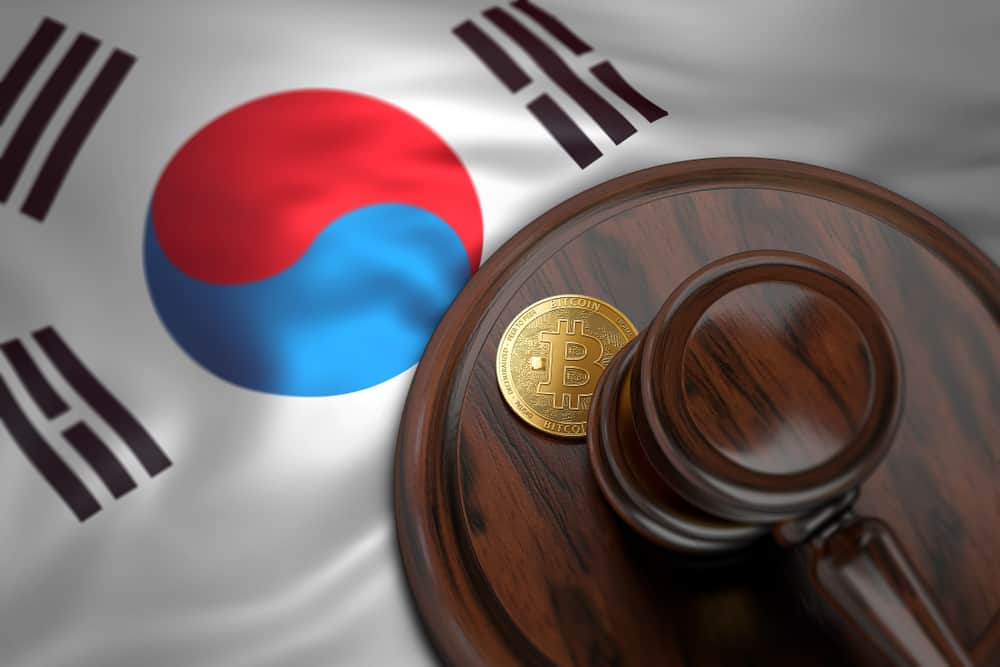South Korea Allegedly Moving Toward Approving Crypto ETFs
11.10.2024 21:30 1 min. read Kosta Gushterov
On October 10, South Korea's Financial Services Commission (FSC) announced the establishment of a Virtual Asset Committee to consider the approval of cryptocurrency exchange-traded funds (ETFs).
This committee will serve as an advisory body providing guidance to the country’s crypto sector. Led by FSC Vice Chairman Soyong Kim, the committee will consist of representatives from relevant government agencies and nine members from the private sector.
The main focus of the committee will be to address critical issues within South Korea’s digital asset sector, including the resolution of corporate accounts.
Currently, South Korea’s Capital Markets Act bans Bitcoin (BTC) and other crypto ETFs, and corporate digital asset accounts are also banned due to anti-money laundering concerns.
In conjunction with this initiative, the FSC founded the Digital Asset Consumer Protection Foundation, a non-profit organization whose idea is to help consumers recover assets from service providers that have gone out of business. The Commission is in the process of reviewing renewal applications from service providers relating to digital assets as many registrations expire in October 2024.
-
1
Trump Family Reaches Resolution on Memecoin Dispute, Eyes Major Token Purchase
08.06.2025 14:00 2 min. read -
2
XRP Could Beat Solana to the ETF Finish Line, Analysts Say
12.06.2025 17:00 2 min. read -
3
Pi Price Prediction: Can Pi Coin Retest All-Time Lows?
13.06.2025 20:10 3 min. read -
4
Plasma’s ICO: A $500M Frenzy Sparks Fairness Debate
10.06.2025 22:00 2 min. read -
5
Bitcoin Holds Above $100K, But Analyst Sees Trouble Brewing
07.06.2025 17:00 1 min. read
Ethereum Accumulation Surges While U.S. Politics Stir Market Uncertainty
A new CryptoQuant report highlights a growing divergence between long-term Ethereum holders and short-term Bitcoin buyers, with significant accumulation behavior unfolding in both markets amid increasing political and economic tension in the U.S.
Kazakhstan to Establish State Crypto-Reserve Under Central Bank Oversight
Kazakhstan is taking a major step toward integrating digital assets into its national financial strategy, with plans to establish a state-managed crypto-reserve.
Strategy Boosts Bitcoin Holdings to 597,325 BTC with Latest Purchase
Bitcoin giant Strategy has added another 4,980 BTC to its reserves in a purchase worth approximately $531.9 million, according to Executive Chairman Michael Saylor.
Veteran Trader Peter Brandt Shares Simple Wealth Strategy with Bitcoin at Its Core
According to renowned market veteran Peter Brandt, trading isn’t the path to prosperity for the vast majority of people.
-
1
Trump Family Reaches Resolution on Memecoin Dispute, Eyes Major Token Purchase
08.06.2025 14:00 2 min. read -
2
XRP Could Beat Solana to the ETF Finish Line, Analysts Say
12.06.2025 17:00 2 min. read -
3
Pi Price Prediction: Can Pi Coin Retest All-Time Lows?
13.06.2025 20:10 3 min. read -
4
Plasma’s ICO: A $500M Frenzy Sparks Fairness Debate
10.06.2025 22:00 2 min. read -
5
Bitcoin Holds Above $100K, But Analyst Sees Trouble Brewing
07.06.2025 17:00 1 min. read


